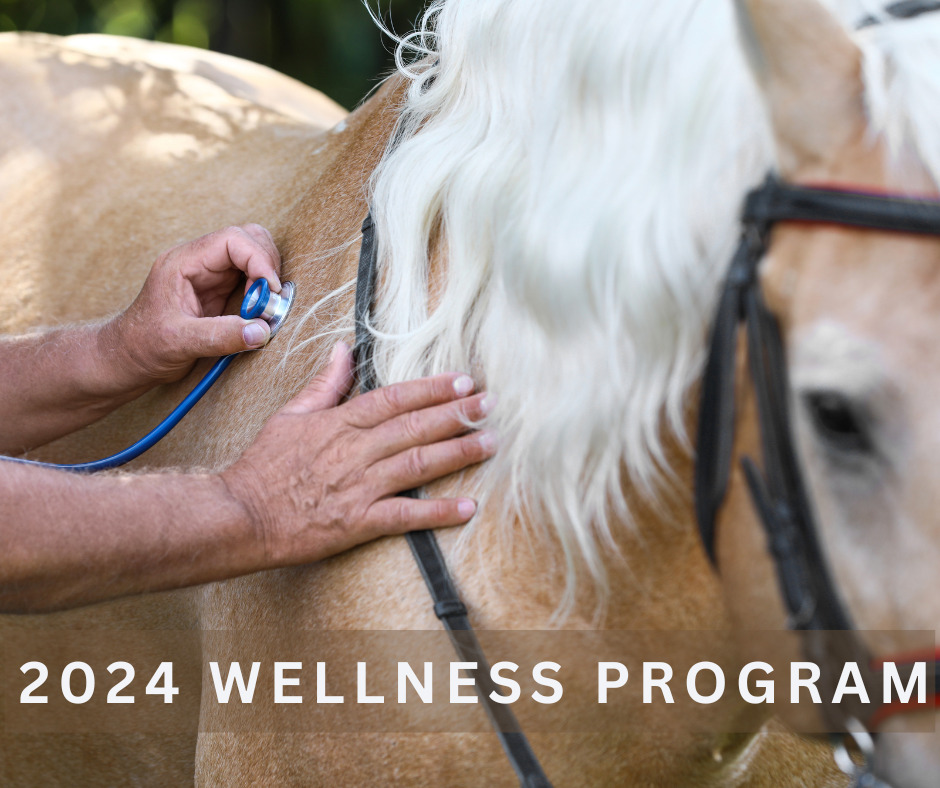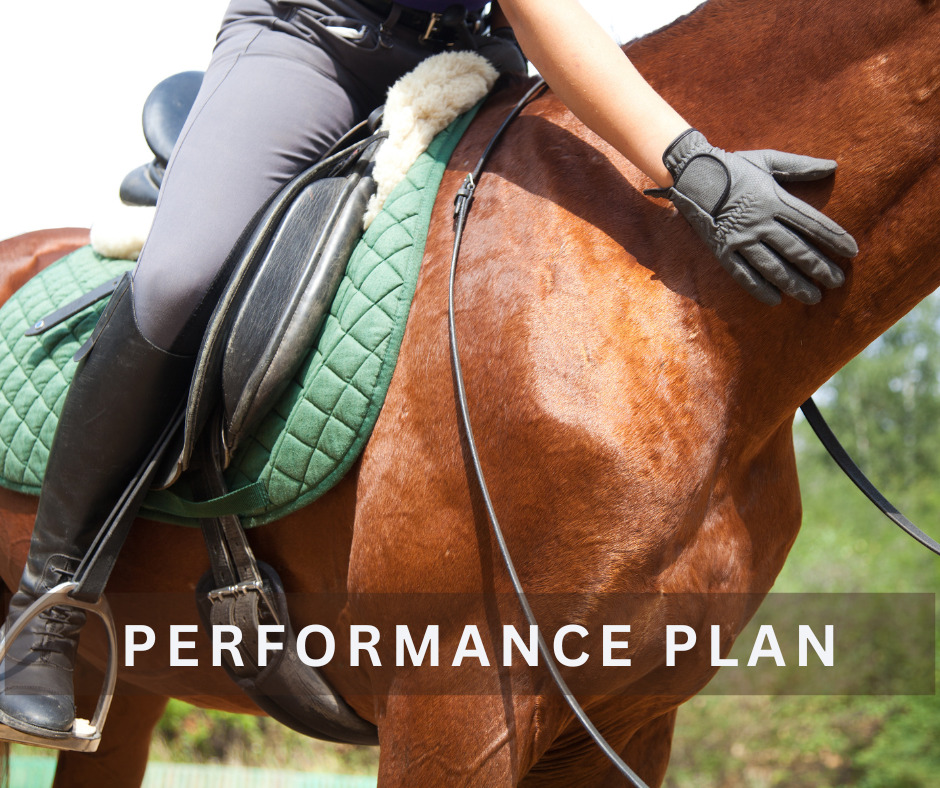In an effort to help you keep your horse at his and her best, Woodside Equine Clinic offers a Wellness Program bundling preventative care services together at a discounted rate.
The plans include a physical exam, core vaccines, yearly dental care and fecal egg count(s). Each plan has additional services specified to your horse’s needs.
Performance Wellness Plan
$754
Previously known as the “Silver Wellness” plan, this wellness plan is our most popular option. Performance Wellness covers the needs of most horses in our practice. This biannual package gives your horse Spring and Fall Wellness exams with vaccines. Also included is a Coggins test, an oral exam and dentistry with sedation, a nutrition consultation, and two fecal tests with parasite control recommendations.
Performance Wellness Plans are available for purchase from January – June due to the inclusion of two annual visits. A Basic Wellness plan can be purchased after June.
Basic Wellness Plan
$456
Previously known as the bronze wellness, this plan may be suitable for horses who do not travel and are never exposed to new horses. This package includes one wellness exam with vaccines. Also included is an oral exam and dental with sedation, a nutrition consultation, and one fecal test with parasite control recommendations. Timing of these once yearly vaccines is important, therefore we recommend basic wellness plan appointments be scheduled for late spring only.
Optional Package Upgrades
We offer upgrade packages, which may be added to both the Performance and the Basic programs, to make sure you get the services that best fit your horse’s needs. The packages include a complete blood count with blood chemistry panel package testing for Cushing’s disease, and sheath cleaning.

Woodside Equine’s Wellness Program fits the requirements of SmartPak’s ColiCare program. This program provides $10,000 towards colic surgery as long as your horse is on one of SmartPak’s eligible supplements and receiving yearly Veterinary Preventive Medication. Although we haven’t seen strong evidence that supports using a product such as SmartDigest Ultra will prevent colic, we see this as another good way to provide you with the resources if your horse should ever need colic surgery. For details from the company, click here: SmartPak’s ColiCare
Questions? Give us a call at 804-798-3281



